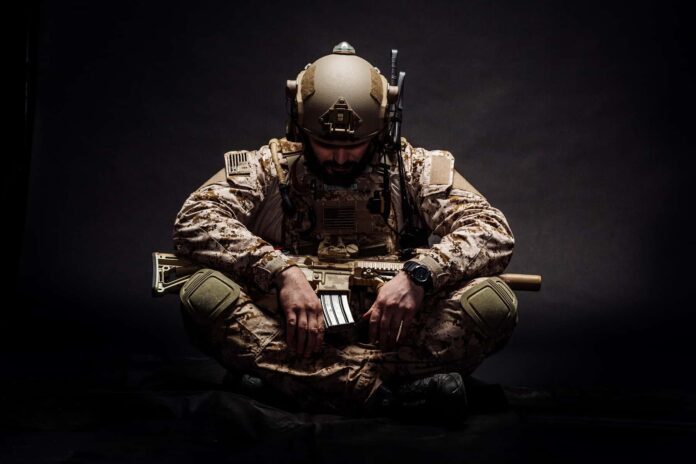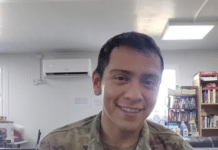The Pentagon officially indicated a sharp spike in OD deaths in 2020 and 2021 among active-duty military personnel and also revealed that fentanyl was responsible for more than half of the casualties.
The number of OD deaths involving fentanyl has more than doubled over the past five years,” the Pentagon disclosed. “We share your concern that drug overdose is a serious problem,” the Pentagon said, “We must work to do better.”
This information was included in the Pentagon’s recent response to an inquiry started by five senators last year. The group of senators, which included Ed Markey and Elizabeth Warren drafted an inquiry into the drug abuse numbers in the military after the news of 14-30 soldiers dying of an overdose in Fort Bragg, North Carolina.
The Deadly Combination of PTSD and Opioids
The overdose rate at the Department of Defense is significantly higher than the civilian baseline. Based on my experience helping Veterans in San Diego, I can’t say that I’m surprised. For one thing, the military is a reflection of society, and the lower-income areas that many of the soldiers come from are inordinately affected by opioid use disorder (OUD).
Military personnel who take part in combat are most at risk of suffering PTSD. But nearly all military service is stressful, which results in increased mental health issues, like PTSD and suicidality. PTSD creates an opportunity for opioids to sink their claws into soldiers and Veterans who are experiencing the symptoms of trauma and are desperate for temporary relief.
Veterans are also vulnerable when they transition out of the structured military into civilian life. They are forced to adapt to a hostile world that doesn’t adequately appreciate the sacrifice they have made for the freedoms we all enjoy. Many former service members find the sights, sounds, and stories of the Ukraine war on the news upsetting. Others feel let down by their government or carry feelings of guilt, shame, and anger related to their service.
So, How Do We Help Vets?
We must focus on both prevention and recovery. The danger of taking illicit drugs has skyrocketed in the last few years due to fentanyl, and we have not achieved adequate awareness about the danger. Opioids like fentanyl, nitazines, and xylazine are not only deadly for users who take them intentionally, but they also poison others when they are mixed into other counterfeit medications like Adderall or benzodiazepines. The Drug Enforcement Agency has launched a “one pill can kill” awareness campaign, and hopefully, our soldiers and Vets are getting that message.
For our soldiers and Veterans who are already experiencing PTSD, anxiety, suicidal ideation, or substance use disorder (SUD), more mental health support needs to be made available, as well as treatment options that are easier to take advantage of. One sign of progress in this area is that Veterans can call the suicide hotline and talk to a live person any time by dialing 9-8-8.
At Confidential Recovery, we have been helping Vets recover from substance use disorders and other mental health issues for almost a decade. In that time, we have seen that Vets respond very well to cognitive behavioral therapy (CBT), mindfulness-oriented activities, and group therapy. Most Vets with PTSD respond positively to Eye Movement Desensitization and Reprocessing therapy (EMDR). Some Vets will benefit from seeing a psychiatrist and taking medication to help with a mental health disorder, or to reduce cravings for substances opioids, or alcohol during early recovery.
Of course, every Vet is unique, and there is a wide variety of services that Vets need improved access to. Some Vets are struggling with homelessness or even food insecurity. Many Vets aren’t aware of the services that are available to them. That is why we created the Veterans Navigation Center in San Diego. Our nonprofit connects Veterans to case managers who can assess their situation and provide help with accessing a wide variety of services, including:
- Acquiring benefits
- Employment/Work/Life Skills Training
- Treatment for Substance Use
- Mental Health Counseling
- Family and Marriage Counseling
- Legal Services
How to Support an Active Military Member or Veteran Support
Make sure any current or former member of our Armed Forces is aware that there is help available if they are struggling with emotions of any kind. The good news is that there’s more support than ever before for Veterans who are struggling with depression, anxiety, trauma, substance abuse, or any other mental health issue.
The VA offers an around-the-clock Veterans Crisis Line that provides help and crisis support – even for Veterans not enrolled in its healthcare network. (The phone number is 800-273-8255.) Alternatively, Veterans can text 838255 if that’s a way that they would prefer to communicate.
San Diego-based Veterans and their families can get in contact with Confidential Recovery at (619) 452–1200 or reach the Veterans Navigation Center at (858) 567-9191 to seek assistance.

About the Author
Jay Wylie is a Southern California native who served as a Naval Officer for 22 years. However, a serious drinking problem derailed that career and returned him to civilian life. Facing the same dark crossroad that all substance abusers face, Jay chose recovery and now helps Veterans and first responders get sober and stay that way at Confidential Recovery in San Diego California.
All content herein is owned by author exclusively. Expressed opinions are NOT necessarily the views of VNR, authors, affiliates, advertisers, sponsors, partners, technicians, or VT Network. Some content may be satirical in nature.
All images within are full responsibility of the author and NOT VNR.
Read Full Policy Notice - Comment Policy





























